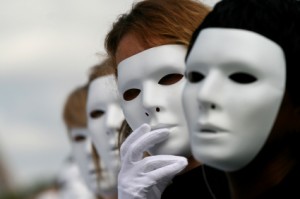Frye’s “I had genius” remark reveals one of the masks he wore. Another is revealed in his statement that The Great Code “was a silly and sloppy book” by the standards of traditional scholarship. Frye was aware that all of us have countless personae, some no doubt troubling to himself and some troubling to others. Here is an account of the “village” of characters in his own psyche:
The individual man comprises a multitude of other characters—Jung’s archetypes are surely only a few threshold dwellers. There is at least a good-sized village inside me. Many are children, some are women, & a few may be animals or even monsters. Some are replicas of other people I know, either in personal acquaintance or in reading. They die, but new ones move in & grow up. All this is not pure whimsy—I’m trying to get at a real fact of existence. Ever since Plato people have talked of the state in terms of the individual: what would happen if one were to look at the individual in terms of a society? Suppose Jung’s “anima” were not a feminine figure in me, but the aggregate of all the female characters in me? He says himself that the animus is regularly a group or council. So with me: in the course of a day, even a day spent in pure solitude, I should go through a bigger dramatic repertoire than any commedia dell’arte. Pedants, buffoons, comedians, debaters, politicians, hermits, saints, sages, middling-sensual men, suburban bourgeoisie all dispute within me, & everything I do & say is the calculus of probabilities resulting from their competition within me. A good deal of behavior shows this. The “censor” could be a whole Sanhedrin, & the kind of experience of conversion described by William James in his chapter on healthy-mindedness corresponds point for point to a political revolution [The Varieties of Religious Experience (New York: New American Library, 1958), 76–111 (Lectures 4 and 5)]. In Victorian times it was fashionable to be patriarchal or matriarchal: only the older & graver heads spoke, & within the individual, as within society, children were seen but not heard. Nowadays democracy is fashionable: we disapprove of censors, allow our women & even children a voice in our assemblies, & if we do not allow our perverts or Calibans to speak, at least we try to locate them & keep a police record of them. Democracy turns easily into a police state, & it is easy for people with liberal & open societies inside them to become converted to a rigorous totalitarian dialectic. I suppose two-party opposition-patterns are more common—nearly everyone is aware of some dividing contrast in his attitudes & moods. I think of all these characters as dramatis personae, speaking masks. Perhaps most of them inhabit a sort of Gentiles’ outer court, the real decisions (every thought is a decision, a bill that’s had two readings & committee in a well-regulated mind) being made by a small cabinet within of high priests. Whether there is one high priest or supreme pontiff I don’t know. This veers toward an idea I’ve had for a long time, that Jesus’ cleansing of the temple & his casting of devils out of individuals were exactly the same act. The thing that’s difficult to grasp is that it’s only the holiest of holies that are socially visible: all the outer courts are hidden. Thus each man looks consistently like one man: only in anarchy do the money-changers & dove-sellers suddenly appear in his face or conversation. Ordinarily he presents the appearance of one man interpreting the will of a small & fairly homogeneous group. Thus for an elect Christian, Christ cleanses the temple, or casts out devils, or harrows hell, redeeming & releasing the bound spirits, or separates sheep from goats, all of these activities being the same.

